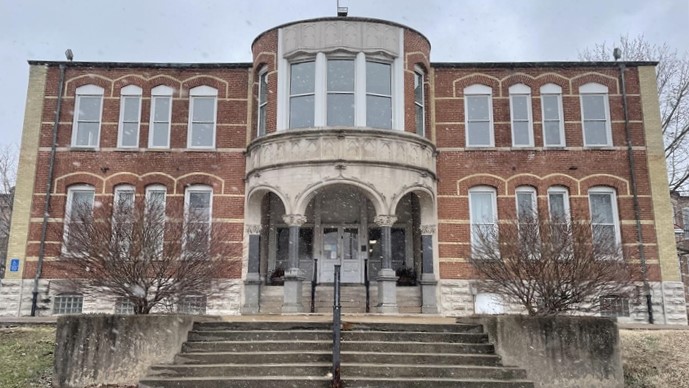SPRINGFIELD — Gov. J.B. Pritzker announced on Wednesday the restructuring of a troubled center housing developmentally disabled residents after months of media reports about resident abuse by staff and attempts to cover it up.
Pritzker will move more than half of the residents from the Choate Developmental Center in southern Illinois — 123 people who live there voluntarily — to other state-supported facilities or community-based homes.
The remaining 112, some of whom were ordered by criminal courts to Choate because of their disabilities, will remain while authorities determine the best placement for them and while they redesign Choate’s campus and program for safer and better care.
The upheaval of the center in Anna, 123 miles (198 kilometers) southeast of St. Louis, follows months of reporting by Capitol News Illinois, Lee Enterprises and ProPublica. They uncovered evidence of staff assaults on residents, efforts by staffers to cover up abuse and the intimidation of new employees to participate or keep quiet about the conduct.
The media reports indicated that 49 people, both staff and residents, have faced felony charges for misconduct since 2015.
At an unrelated news conference, Pritzker said he blames the troubles on his predecessors who left centers such as Choate “underfunded and neglected.” He contended his administration knew of the problems when it took over in 2019 and has been making changes while trying to eliminate state debt to ensure there is money to follow through.
“We’ve taken action to protect resident safety at our state centers over the last four years and … have nearly doubled funding for the home- and community-based system of care for people with disabilities and mental health struggles,” Pritzker said.
Underfunding, coupled with a widespread worker shortage that makes it difficult to recruit and retain qualified employees stymied progress, Pritzker said. Some adjustments were ineffective. With money in the budget, the governor said transformational change can occur.
But faced with public prosecutions and other evidence the administration had, Pritzker was asked why he didn’t intervene sooner.
“When people are being charged, when they’re being held accountable, it’s clear that there’s an enormous amount that needs to be done. And even before that, we had been starting to do that work,” Pritzker said. “Big transformational planning had been underway, but this is not something you can snap your fingers and fix it. You can hold people accountable. You can arrest people who are breaking the law, and that’s been done. Now the question is how do you change fundamentally the way that (state-run centers) and Choate are operating and treating their people going forward?”
The Department of Human Services, which runs Choate, has named Ryan Thomas to the new position of chief resident safety officer to monitor conduct and conditions in the state’s developmental centers. Thomas previously was Human Services’ operations program manager, overseeing quality, safety and health care. Her duties included care of 2,000 asylum seekers bused last fall from the Mexican border to Chicago.
The Human Services Department will also add 10 investigators to the staff of the agency’s inspector general.
Pritzker stressed that he is not closing Choate. No one, including administrators, has been dismissed from employment and no layoffs were mentioned. Roberta Lynch, executive director of the American Federation of State, County and Municipal Employees Council 31, which represents Choate employees, said in a statement that AFSCME will “protect the jobs of Choate’s dedicated and compassionate employees, and our union will continue our close alliance with the Friends of Choate family group to ensure that no resident is forced out of their home without their consent.”
Illinois lags other states in following a 40-year-old trend to house people with developmental disabilities in the community instead of institutions, bolstered by 1999 U.S. Supreme Court ruling that a federal judge later determined Illinois was not living up to, thus ordering change.
Advocates for the developmentally disabled were pleased with Pritzker’s announcement. Heidi Dalenberg, managing legal director of the American Civil Liberties of Illinois said, “These individuals need to reside in the community, in the least restrictive setting possible.”
“Now our work must focus on ensuring the transition is made smoothly and appropriately,” said Josh Evans, president and CEO of the Illinois Association of Rehabilitation Facilities. “We also hope the public conversation around needs for the intellectually and developmentally disabled community is continuing, not ending.”

